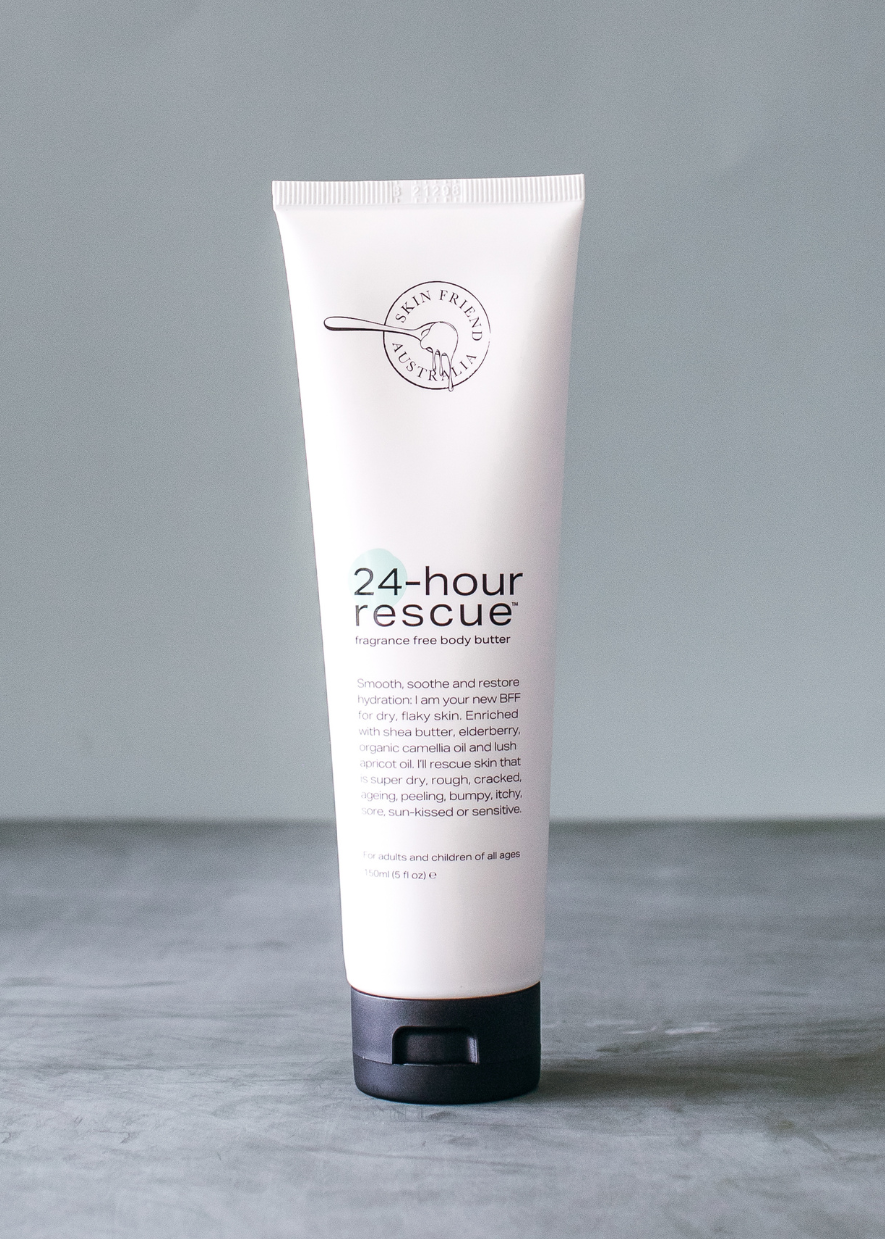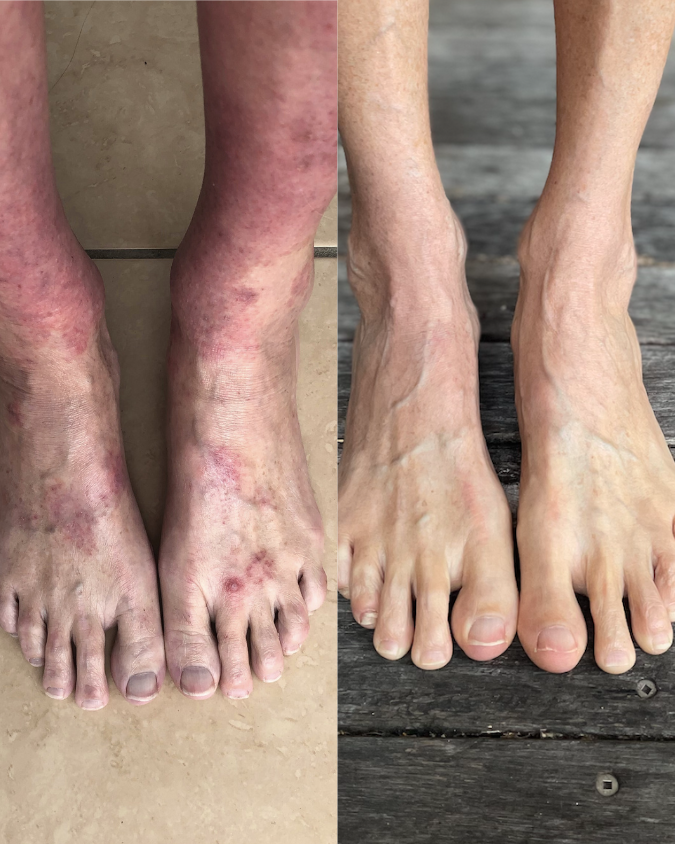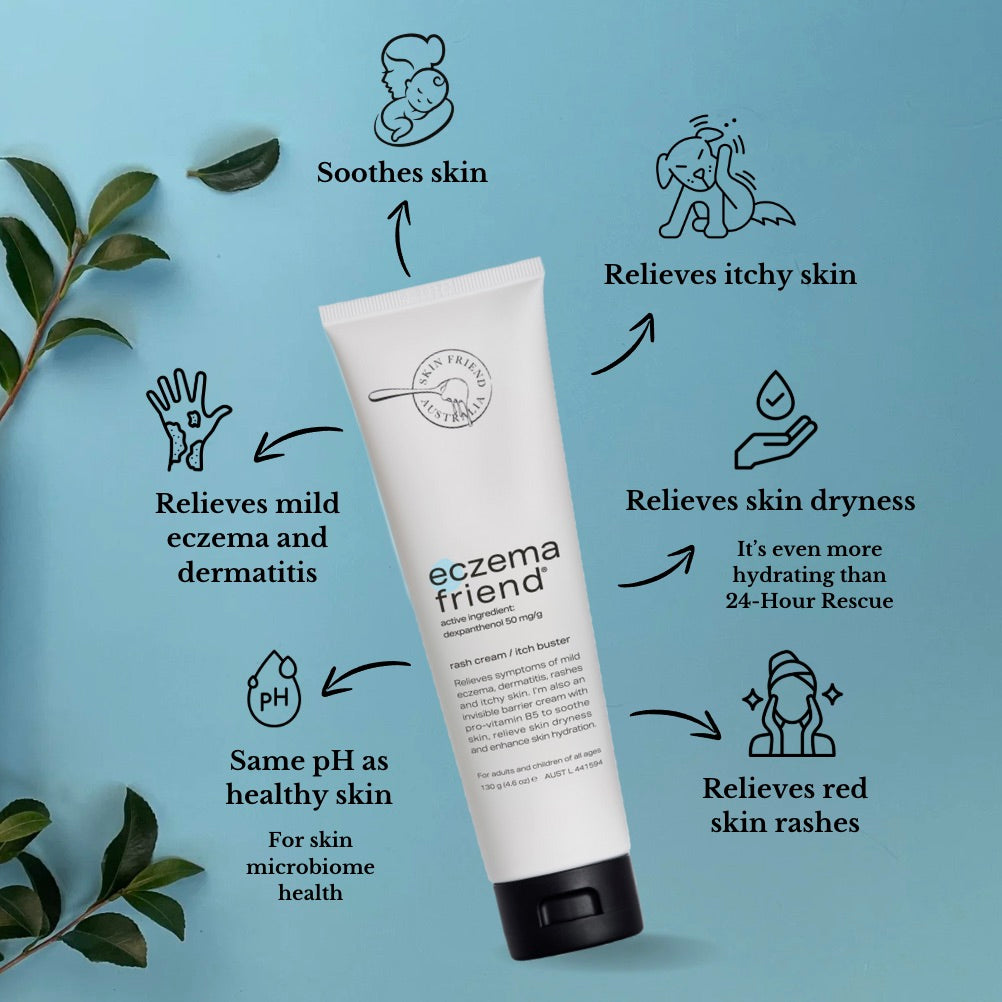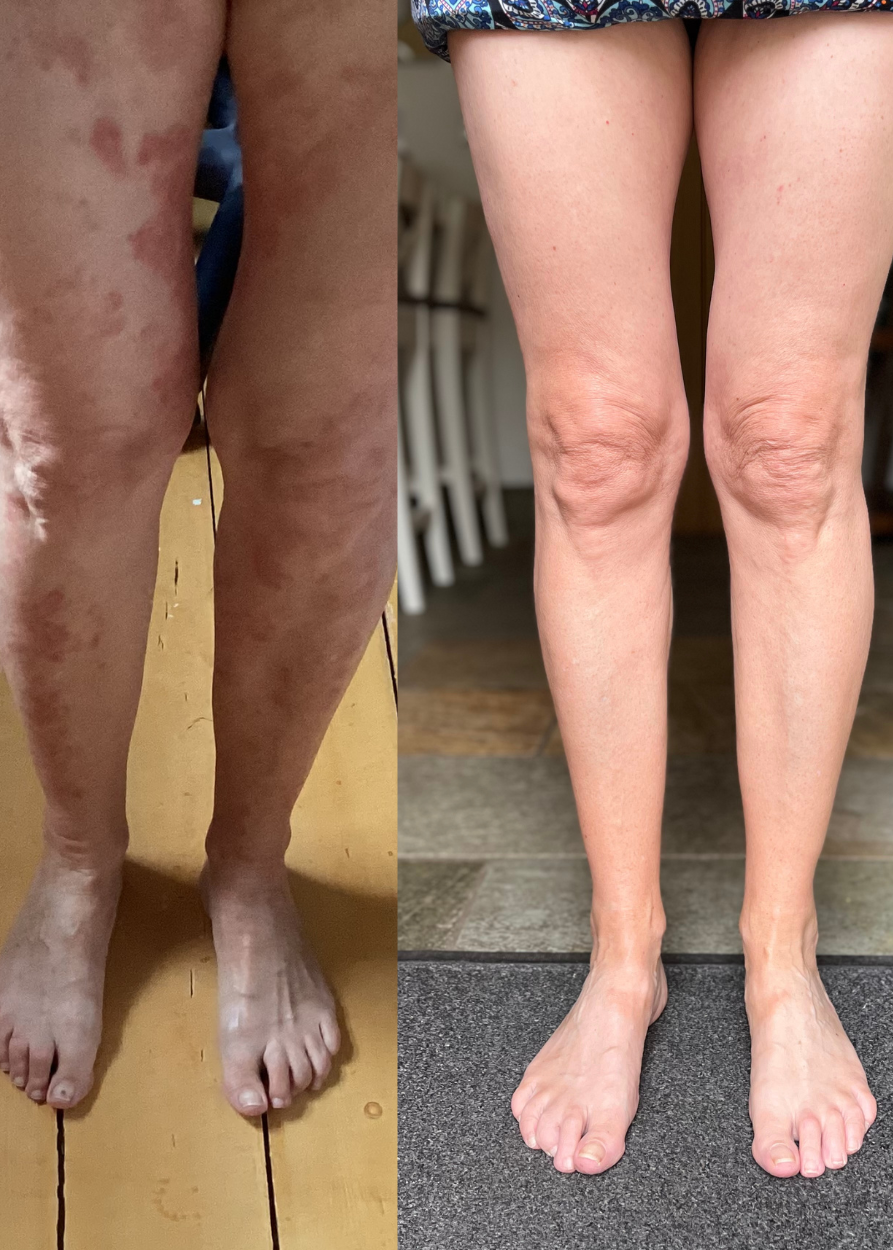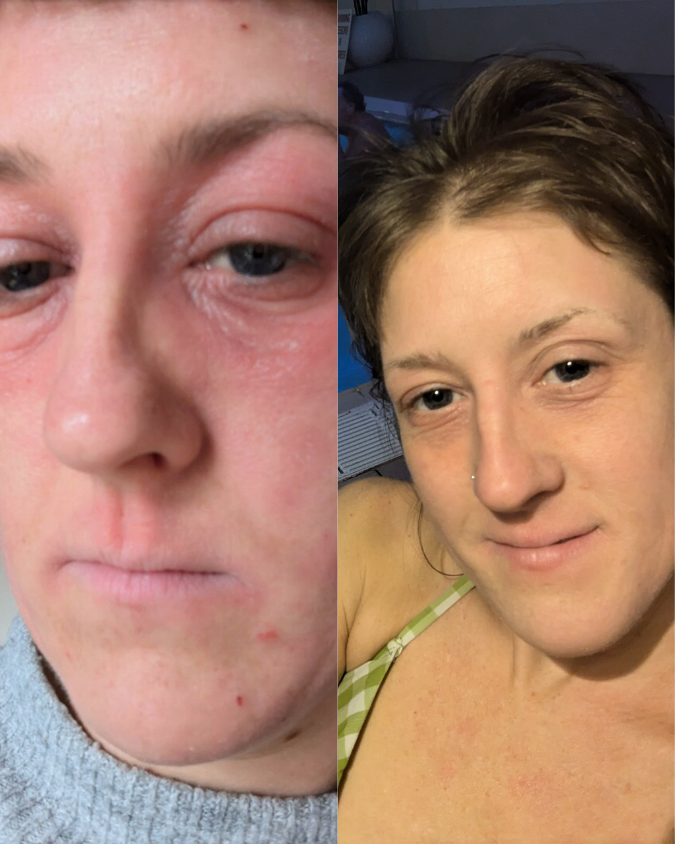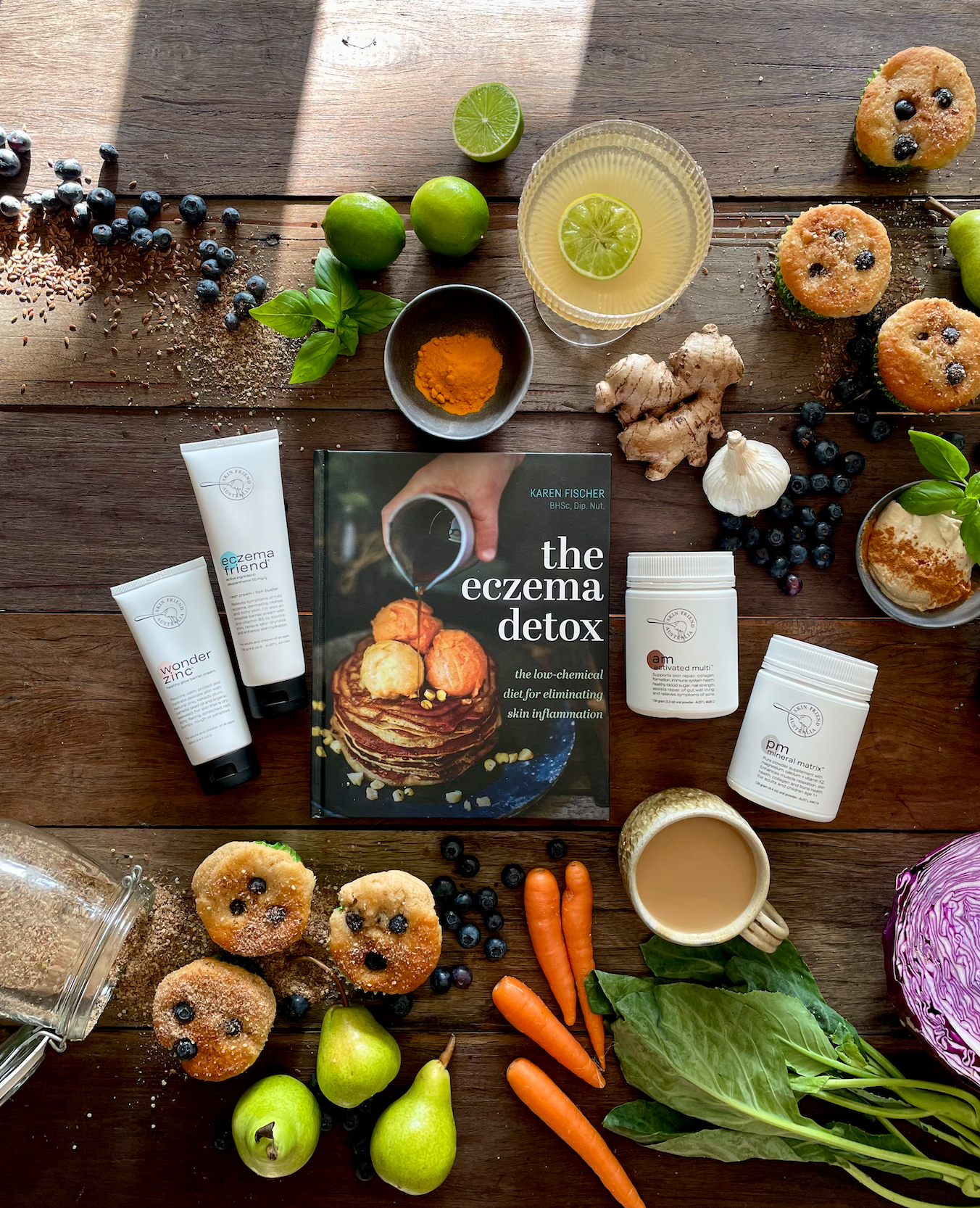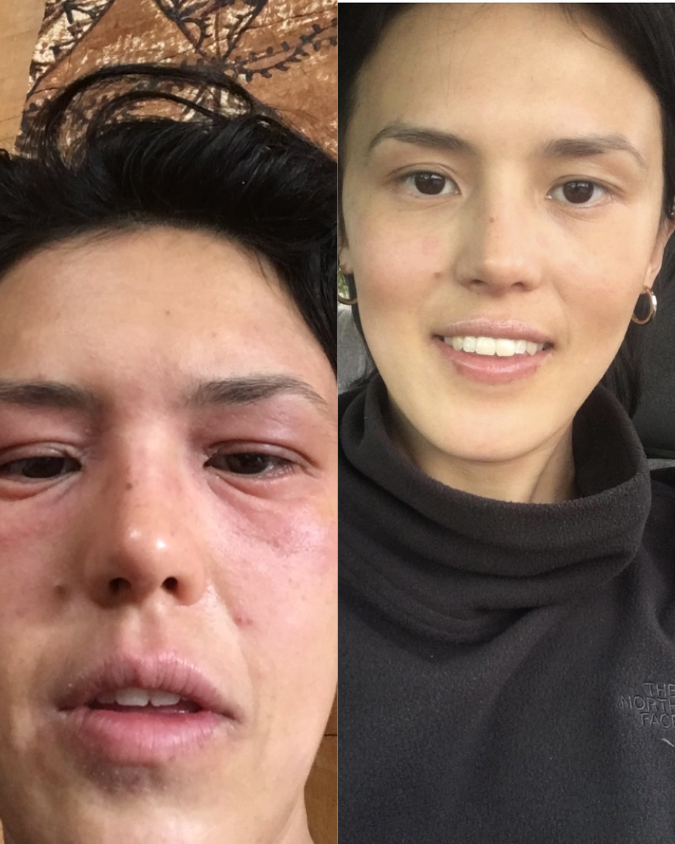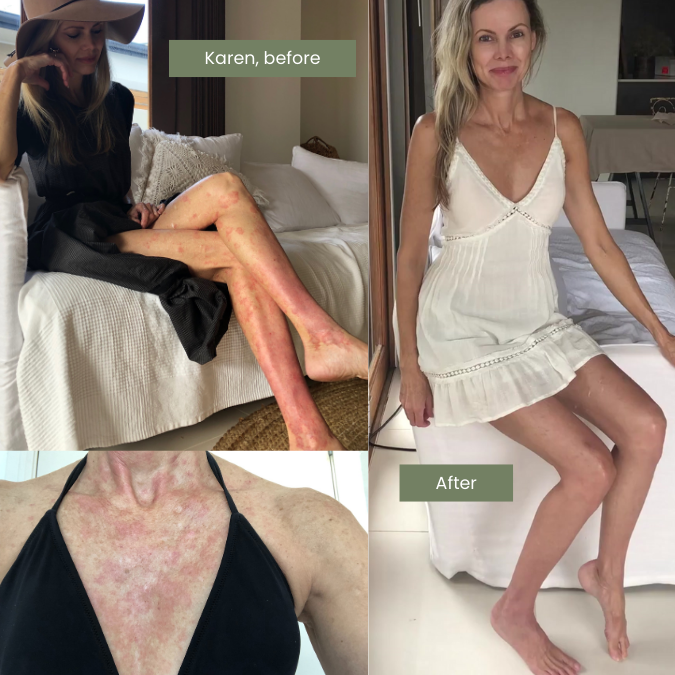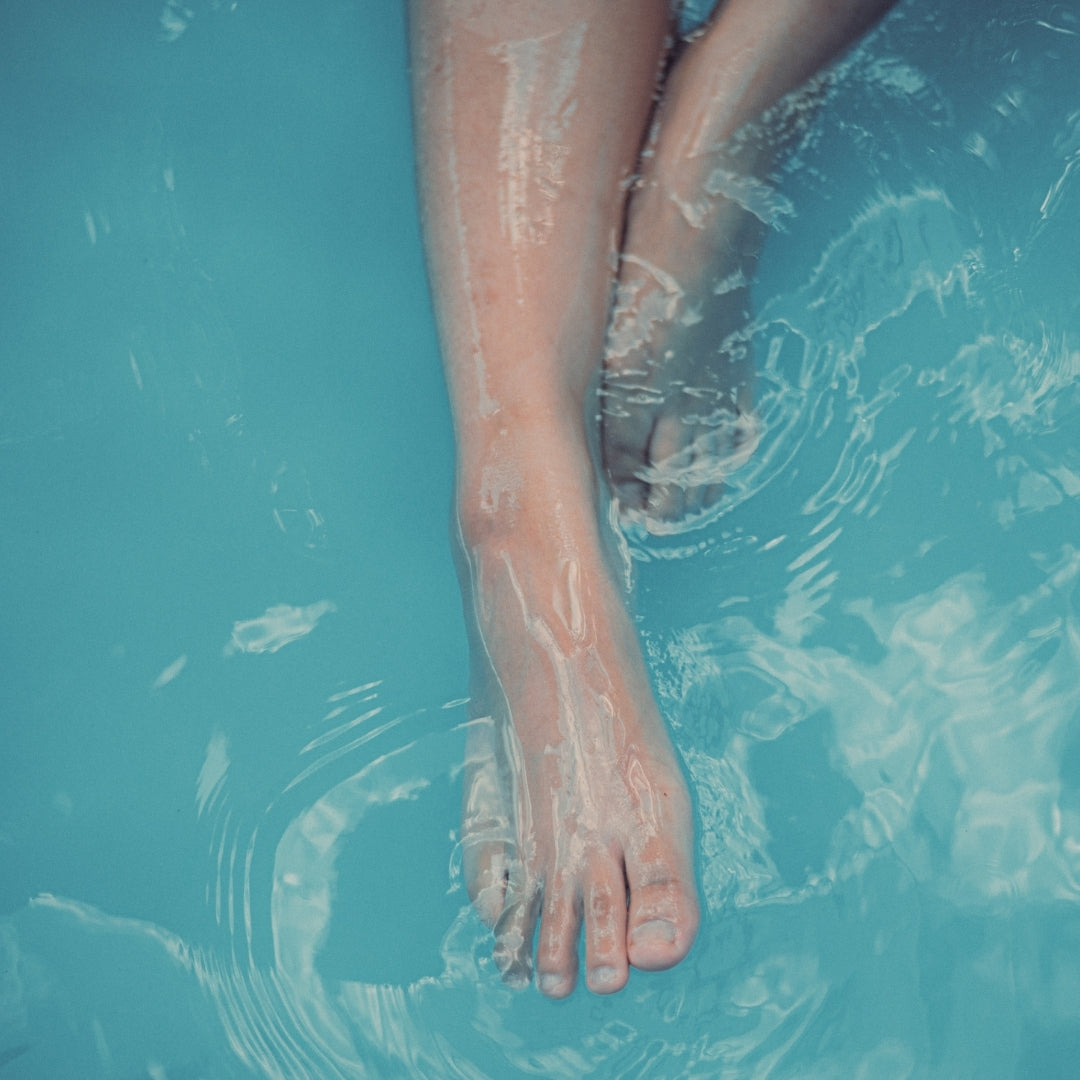Are you paranoid about smelling a bit funky, so you pile on deodorant? Or maybe you’ve got that one friend (or partner — we all know one) who always smells a little… ripe.
You might secretly wish they’d just shower more often or scrub harder with the soap.
Here’s the twist: that soap might actually be the hidden culprit behind the stink. Turns out, the very thing we’ve been told keeps us fresh could be making us smell worse.
Maybe it’s time to rethink our washing habits.

Confession time.
I used regular soap recently.
If you know my work, you’ll know I’m a self-confessed “soap dodger” — I avoid traditional soap bars because they have the wrong pH, which can damage your skin barrier, microbiome and acid mantle. But I was travelling, and the only thing available in the bathroom was a bar of pretty-packaged soap. So, one night, I made an exception and used it on my armpits. What harm could one application cause, right?
This is what happened…
It wasn’t what I expected.
No rash. No itch.
But the next day I developed rank BO!
It was winter and I hadn't even exercised, but I smelt like summer heat / I-haven’t-showered-in-days and ran-a-marathon BO. WTF?
My usual deodorant suddenly didn’t work, and even the back-up chemical deodorant I keep for emergencies couldn’t mask the smell. TBH, I was embarrassed. And a little baffled. I hadn’t changed my routine — except for that one night with the soap.
Image: Don't be fooled by pretty packaging and scents — all types of soap can destroy your skin biome and cause rebound body odour that is worse than the original odour
The Surprising Link Between Soap and BO
I started digging and realised the culprit was the soap itself.
Regular soaps — and also strong antibacterial washes — don’t just clean the skin, they wipe out the good microbes that normally keep the BO-causing bacteria in check. This is why sensitive skin products designed with pH-optimised formulas are essential for maintaining a balanced microbiome.
I’d heard stories of people who have to use the strongest antibacterial wash products because otherwise they smell. Ironically, the soaps may be the very reason they have BO in the first place. When you keep nuking your skin biome, the wrong bacteria often take over.
There's even a new trend for "all over" body spray deodorants, which are packed with hormone disrupting chemicals that are not good for your skin, biome or lungs. These chemical cocktails are NOT the solution, and they could lead to skin problems such as painful skin rashes and chemical sensitivity.

Image: All-over body sprays are a disturbing new trend that is not the solution to body odour
On the flip side, there’s also a growing online movement of people who skip soap entirely when showering — and find their stinky body odour disappears over time. People are reporting that, after ditching soap, their BO improved or vanished, because their skin microbiome had a chance to rebalance.
It made me wonder: have we been brainwashed into believing we need harsh soaps to stay fresh? Now we are being sold all-over body spray deodorants to hide the rebound stink.
It's a vicious cycle that is not good for your skin. And brands are profiting from a problem they might have unknowingly caused.
Why pH Matters for Skin (and BO)
To work out why we may smell bad, let's look at what's essential for creating or maintaining healthy skin:
Healthy skin has a slightly acidic pH — around 4.0 to 4.9. This “acid mantle” is crucial for supporting the friendly microbes that protect us from odour-causing bacteria and other pathogens. Using a skin barrier cream with the correct pH helps maintain this protective layer.
However, that bar of soap, soap-on-a-rope, and castile soap, are alkaline (pH 9.0–11.0). Even plain tap water is (unfortunately) often alkaline with a pH around 7.0 in many regions and approximately 8.0 in parts of Europe).
Tap water + soap is a disaster for your skin biome.
Research shows that skin with an acidic pH (around 4.0–4.7) helps to keep the skin’s beneficial resident bacteria anchored to the surface. This is ideal as you keep a diverse variety of microbes on your skin so opportunistic pathogens (like candida albicans and staph) do not take over.
In contrast, when your skin is a more alkaline pH (7–9), it causes your protective microbes to loosen and "fall off" the skin. Now the opportunistic pathogens (including the BO-causing microbes) quickly move in and hijack your skin.
This isn’t just an issue for body odour: people with eczema often have higher skin pH (above 6.0, and often around 7.0), which weakens the barrier and encourages the growth of pathogens such as Staphylococcus aureus — a microbe commonly found on eczema-affected skin that can worsen symptoms. Staph makes you super itchy! If you're struggling with persistent itchiness, explore our itchy skin treatment options formulated to support a healthy skin pH.
The first step is to STOP USING THE SOAP.
Simple right?
I have an easy routine you can follow to restore your skin's microbiome and acid mantle (see next).
Repairing My Broken Biome
After the soap incident, I set about fixing my BO and biome.
Every day I applied a pH-optimised moisturiser to my armpits after showering — specifically 24-Hour Rescue as it has a pH of 4.5 (you could also use Eczema Friend as it has a pH of 4.6).
24-Hour Rescue works as a skin freshener because it has a slightly acidic pH that mimics the pH of health skin and this acid mantle protects your skin from opportunistic BO-causing microbes.
A more diverse range of microbes means fresher smelling skin all day and night, no matter how much exercise you do.
Image: The new way to prevent body odour — a pH optimised skin cream
I’ll be honest: it felt odd at first, rubbing moisturiser into my armpits. I’ve spent years neglecting that area, just washing it with a mild body wash and using deodorant. But after about a month of doing this simple routine, something amazing happened:
👉 I no longer needed deodorant.
I’ve literally never been able to go deodorant-free in my life… until now.
These days, I shower with water (and my own pH-optimised wash, which will be out soon). My skin feels clean, and even after exercising I don’t smell. When I’m going to a public event or exercising outdoors, I still use a natural deodorant — one that never used to work for me. But now it’s enough, thanks to the use of the Skin Friend moisturisers.
For the first time, I feel like I can finally toss the aluminium deodorant (that I never truly loved) into the bin.
A Note on Aluminium-Based Deodorants
For years, I relied on aluminium-based deodorants because they were the only thing that kept me BO-free when exercising or socialising. But aluminium salts work by blocking sweat glands, which can irritate sensitive skin — especially if your skin barrier is already compromised.
Plus, these deodorants don’t address the root cause of BO — the disruption of the skin’s microbiome. Like many people, I also wanted to reduce my use of aluminium-based products where possible, as I prefer to minimise unnecessary exposure to heavy metals that can be toxic.
Image: Aluminium-based deodorants don't treat the root cause of body odour and they often contain fragrance that can disrupt hormones and trigger chemical sensitivities
FAQ: "What about detox charcoal products — can they “detox” our pits and make them stink-free?"
Nope.
Charcoal — even the activated kind — isn’t a magic pit-detoxer like deodorant brands claim. Charcoal has an alkaline pH around 9–11, which disrupts the skin’s acid mantle just like harsh soap.
When the skin’s pH rises, the friendly microbes that help keep BO-causing bacteria in check can’t thrive — instead, they can actually die off.
So while the detox “nuke” may temporarily eliminate the smell (because it’s wiped out most of your microbiome), the rebound smell might be funkier than before.
Image: Charcoal masks are highly alkaline, with the same pH as harsh soaps, which can damage your microbiome and lead to skin problems — they should be avoided
FAQ: "I usually shave with soap. What can I use instead?"
It's a good idea to ditch the soap. Many of our customers — like Alex — report that they shave using our 24-Hour Rescue cream, and they swear by it.
It provides a soft, glideable surface (even better than soap) so your razor moves smoothly without the drag that can irritate skin. Unlike alkaline soaps or foaming shaving gels, it has a skin-friendly pH that doesn’t disrupt your skin’s microbiome or strip the protective top layer.
It’s a simple swap that leaves skin feeling calm, hydrated and protected with every swipe of the blade.
Image: the new way to shave and save your skin
My Simple BO-Free Routine
Here’s exactly what I do:
-
After showering at night: I dry my skin thoroughly.
-
I apply a pea-sized amount of either 24-Hour Rescue or Eczema Friend to each armpit, massaging it in so it disappears. [Note I no longer have eczema but I use Eczema Friend to prevent relapse.]
-
I don’t apply any deodorant at night — I just go to bed.
-
In the morning: I wake up BO-free. I don’t reapply the moisturiser because the effects last for at least 24 hours.
-
Before heading out to exercise or socialise, I often apply a natural deodorant and let it dry before getting dressed (optional, but I like the extra insurance).
That’s it.
It’s simple. And it works.
How long will it take to permanently prevent BO? It takes about a month to restore your biome with daily use of the cream (and new bathing habit going soap-free) so be patient.
Final Thoughts
This little experiment completely changed the way I think about soap, skin pH and BO.
By respecting the skin’s acid mantle and supporting the natural microbiome — instead of fighting it — you can say goodbye to harsh soaps and unwanted odour.
If you’d like to try this BO-prevention approach, check out our pH-optimised skincare products here.
References
Lambers H, et al. Natural skin surface pH is on average below 5, which is beneficial for its resident flora. Int J Cosmet Sci. 2006 Oct;28(5):359-70. doi: 10.1111/j.1467-2494.2006.00344.x. PMID: 18489300.
Chaturvedi K, et al. Bamboo for producing charcoal and biochar for versatile applications. Biomass Convers Biorefin. 2023 Feb 13:1-27. doi: 10.1007/s13399-022-03715-3. Epub ahead of print. PMID: 36817514; PMCID: PMC9924895.










